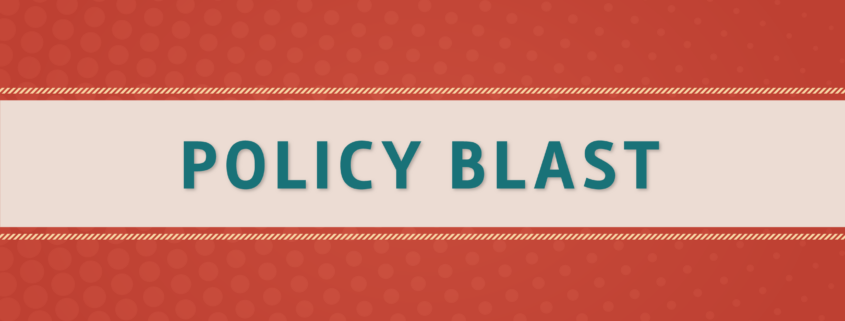MOU Between the VA and IHS Updated to Improve the Health Status of AI/AN Veterans and Include UIOs
MOU VA/HIS
MOU Between the VA and IHS Updated to Improve the Health Status of AI/AN Veterans and Include UIOs.
On October 1, 2021, the U.S. Department of Veteran Affairs (VA) Veterans Health Administration (VHA) and the U.S. Department of Health and Human Services (HHS) Indian Health Service (IHS) signed a new Memorandum of Understanding (MOU) aimed at improving the health status of American Indian and Alaska Native (AI/AN) Veterans. This MOU establishes a framework for coordination and partnership to leverage and share resources as well as investments in support of each organization’s mutual goals. The new MOU replaces and supersedes the MOU signed in October 2010.
The MOU is being updated because in 2019, the U.S. Government Accountability Office (GAO) published a report that contained a recommendation for IHS and VHA to revise the MOU and related performance measures so that they reflect best practices for successful performance measures, including the identification of measurable targets. GAO’s recommendation served as the catalyst for initiation of tribal consultation by VHA and Urban Confer by IHS regarding updates to the MOU.
BACKGROUND
In 2003, the VHA and the IHS initially entered an MOU to improve access and health outcomes for AI/AN Veterans. They then implemented a revised MOU in 2010 to further establish mutual goals to advance collaboration, coordination, and resource sharing. UIOs were explicitly mentioned in the MOU language.. However, the VA’s position was that UIOs were not identified in 25 U.S.C. §1645(c) as one of the organizations it could reimburse.
NCUIH and UIO leaders have been testifying before Congress for years regarding the MOU not being fully implemented for UIOs. Between 2012 and 2015, the VA reimbursed over $16.1 million for direct services provided by IHS and Tribal Health Programs covering 5,000 eligible Veterans under the IHS-VA MOU.
On December 27, 2020, the Consolidated Appropriations Act, 2021 was signed into law, providing authority for UIO reimbursement from VA. This critical piece of legislation (Health Care Access for Urban Native Veterans Act) included in the Consolidated Appropriations Act, 2021 will make a meaningful difference in the funding for health care services provided by UIOs to improve healthcare to AI/AN Veterans. Passage came after advocacy from NCUIH and other national organizations serving AI/ANs. On July 15, 2019, the National Congress of American Indians( calling on the United States Congress to enact legislation requiring the VA to reimburse UIOs for health care provided to AI/AN Veterans. Following the resolution, NCUIH testified before Congress on Native Veterans’ access to healthcare, asking the VA to “fully implement the VA and Indian Health Services’ Memorandum of Understanding (VA-IHS MOU) and Reimbursement Agreement for Direct Health Care Services.” On December 4, 2020, NCUIH, the National Congress of American Indians (NCAI), and National Indian Health Board (NIHB) wrote a letter urging Congress to ensure the passage of H.R. 4153 – Health Care Access for Urban Native Veterans before the end of the year.
In a letter[1] sent to IHS in March 2021, NCUIH emphasized the need for VA and IHS to approach their common issues of statutory interpretation on provisions related to Native Veteran eligibility, copay exemption, and reimbursement with the requisite flexibility to ensure practical implementation and consistency with the Indian Health Care Improvement Act. NCUIH also made recommendations to assist IHS in making improvements to areas collaboration, including requesting that IHS work with the VA to revise the VA and to specify that UIOs have access to the CMOP through the National Supply Service Center (NSSC). Additionally, NCUIH continued to advocate for better access to broadband/information technology wherever AI/AN Veterans reside.
The new MOU reflects many of the recommendations, requests, and comments NCUIH expressed in the most recent comment period and mentioned that the VHA recognizes the importance of coordinated and cohesive efforts on a national scope, while acknowledging that the implementation of such efforts requires local adaptation through an agreement to meet the needs of Veterans and their families as well as UIOs.
Importance of Including UIOs in the new MOU
Veterans often choose to visit UIOs, either as their primary providers or as parts of their care teams, and these partnerships need to be seamless to promote access to quality care for Veterans based on their needs, rather than expecting the Veterans to conform to a fragmented . According to a recent Tribal Consultation Listening Session Summary Report, it was noted that the VA has stated that they will work to cultivate relationships at the local and national levels. Through these partnerships, the VA has suggested that outreach events are held to help Veterans enroll in benefits and file claims. However, as one commenter noted, “UIOs [had] largely been left out of this agreement until recent legislation made it clear that UIOs should be treated as full partners in the MOU.” Several respondents urged VA to continue to be inclusive of these programs and treat them as full partners within the language of the MOU.
[1] FINAL NCUIH VA_IHS MOU Confer Comment.pdf






Leave a Reply
Want to join the discussion?Feel free to contribute!